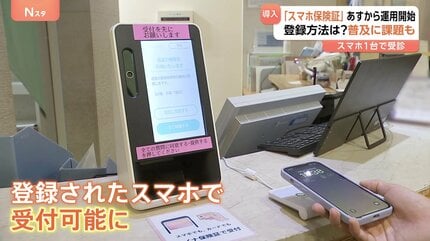Japan has begun full-scale implementation of digital insurance cards via smartphones, under a new policy aimed at digitizing its public services. Despite the convenience and efficiency these virtual cards offer, there are concerns about possible challenges like the digital divide, security risks, and user-tech adaptation. Authorities need to address these issues to ensure the system's broad acceptance and effectiveness.
In Japan, health insurance cards are compulsory for medical consultations, and losing it can be a hassle. The move towards digitized cards eases this burden and also aligns with the government's “Digital Reform” agenda. However, as a country with a considerable senior population, concerns arise over whether all demographics can adapt to this digital shift.
Similar movements have occurred in the US, with tech giant Apple recently integrating health insurance cards into its digital wallet. However, the US has a more diverse range of health insurance providers and systems, and the success of this transition remains to be seen. The EU, while keen on digitization, also struggles with issues such as data protection and individual privacy rights.

